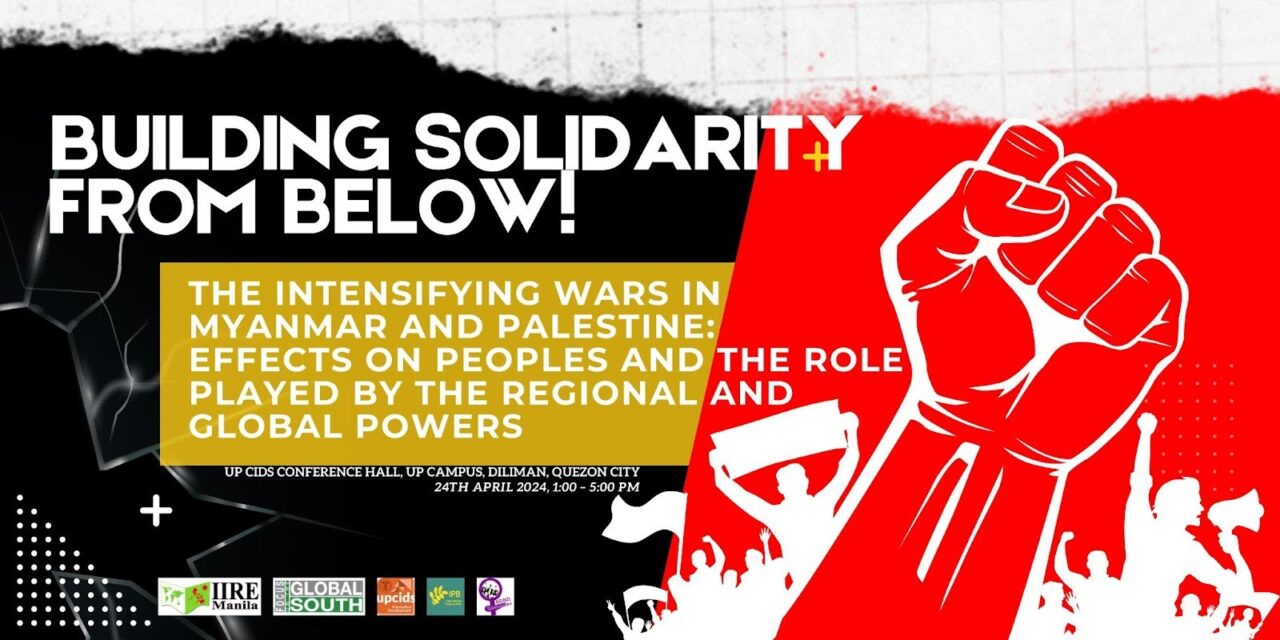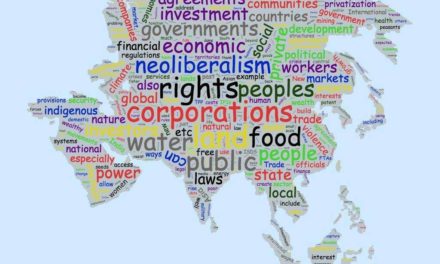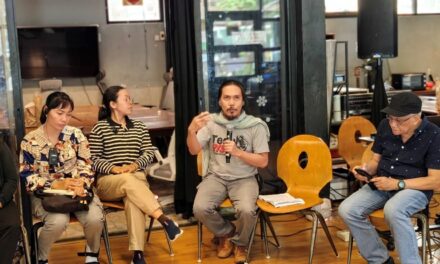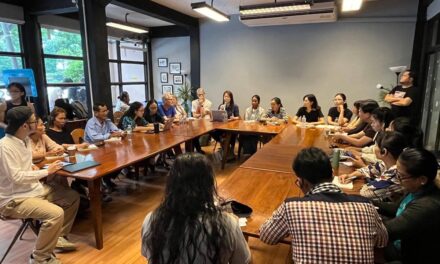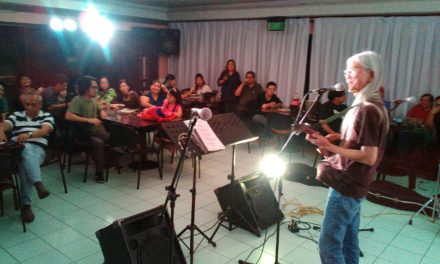The International Institute for Research and Education (IIRE) Philippines, an educational and research organization that spearheads the annual Asian regional school for social activists, together with Focus on Global South, International Peace Bureau, LABAN Kababaihan (Women Fight) and the UP-CIDS Program on Alternative Development organized the public forum Building Solidarity from Below last 24 April at the UP Center for Integrative and Development Studies.
The forum was an opportunity to share and discuss latest updates on the current state of genocide of the people in Myanmar and Palestine, and also other militarism and wars now impending within the Asia region.
The two speakers Ms. Emma Leslie of the Center for Peace and Conflict Studies (CPCS) from Siem Reap Cambodia who joined via Zoom and Ms. Judy Miranda of the No to War Network , Philippines provided insights on the wars in Myanmar and Gaza,the internal dynamics and challenges within resistance movements, as well as prospects for building solidarity movements. .
The forum was participated in by development workers, academic activists from Sri Lanka, Nepal, Bangladesh, Indonesia, Pakistan, Australia and the Philippines. .
Below is the synthesis of the discussion:
- Complex and complicated nature of the conflicts and struggles; Long-drawn and inter-generational conflicts
These conflicts can be traced back to conquest and occupation- from within the state and from another state imposition of one set of culture and beliefs (usually of the majority) over minority group- attacks against the right to self determination.
These conflicts are marked by the use of extreme violence. The use of military power targeting civilians.
The are characterized by the weaponization of laws and policies to institutionalize the marginalization and domination and the use of cultural tools to normalize these narratives of occupation and domination.
They highlight geopolitical dimensions and big power dynamics particularly the role of china, and the United States over control of the region.
The complex nature of these conflicts is underpinned as well by narratives of false dichotomies and choices between democracy vs development, pacification rather than addressing root causes, and humanitarian versus political issues..
On the economic side, there are issues as well related to economic sanctions, and how these have pushed as well for illegal sources of revenues; and the corporate agenda/economic interests associated with global trade and investments and power and control of land and resources. Lately we are seeing as well the increasing emphasis on the nexus of economic and national security issues
- Highlights the importance of documentation and reporting of impacts especially in the context of censorship and control over information exerted by occupying power
Wars and conflicts have led to massive impacts–staggering numbers of casualties and civilian deaths including of women and children; they have caused massive displacements, damage to environment, damage to infrastructures like hospitals, roads and bridges, homes, damage to cultures. Wars and conflicts have deepened hunger and food insecurity (‘catastrophic hunger), and serious human rights violations
- Building the resistance- huge challenge in the wake of rising authoritarianism and shrinking or complete absence of democratic space
We are witnessing various forms and strategies of resistance to these wars and conflicts, from civil disobedience, non-violent resistance, to armed struggles. We are seeing efforts to build broader national coalitions and movements and foster international solidarity groups among people standing with people and against forces of war and conflict
There are ideas as well for new approaches to international mediation, maximizing the role of young people, and mobilizing artists/cultural responses.
- Alternatives- changing the discourse and shifting the dynamics and mindsets and processes; rethinking models; asking critical questions
Some of the ideas include new approaches to sharing power, transformative peace leadership, recognition of minority rights, pushing for accountability, new modes of mediation like ‘ being in the middle by being on the edge’ approach and feminist approaches, as well as building capacities for governance and building possibilities.
- Proposed actions: How do we build solidarity from below?
- Unpacking the issue
- Deepening our understanding of the root causes of conflict
- Challenging mainstream narratives about the conflict
- Joint statements to oppose these wars and conflicts
- Movement building across the planet; worldwide solidarity

